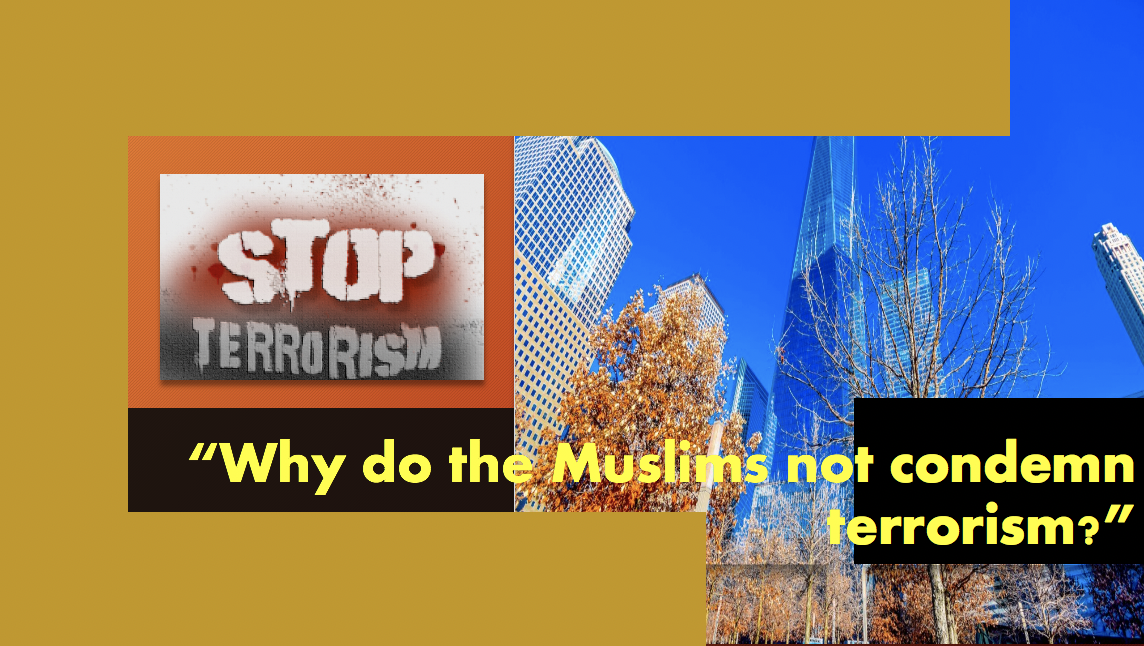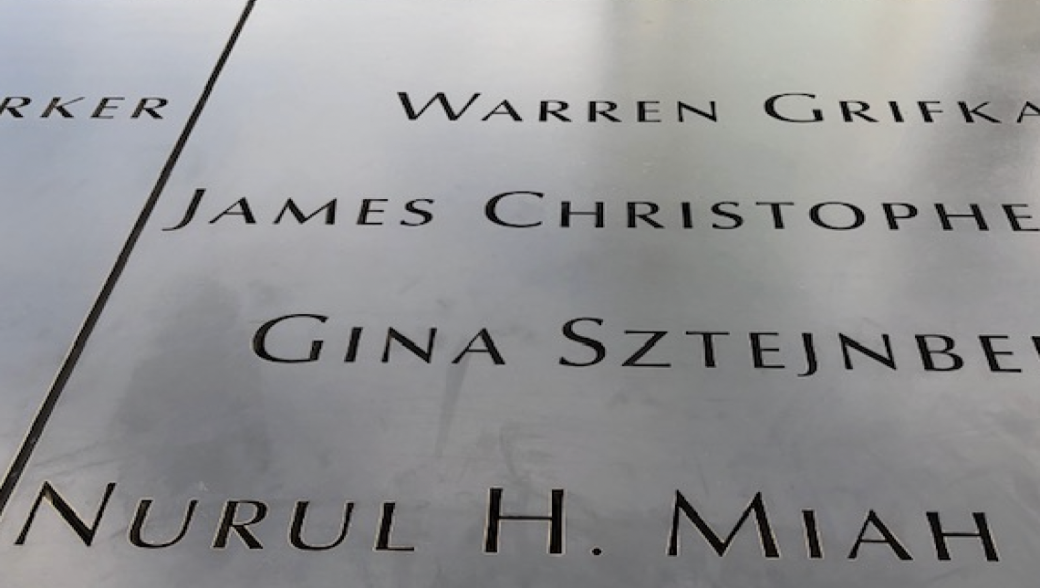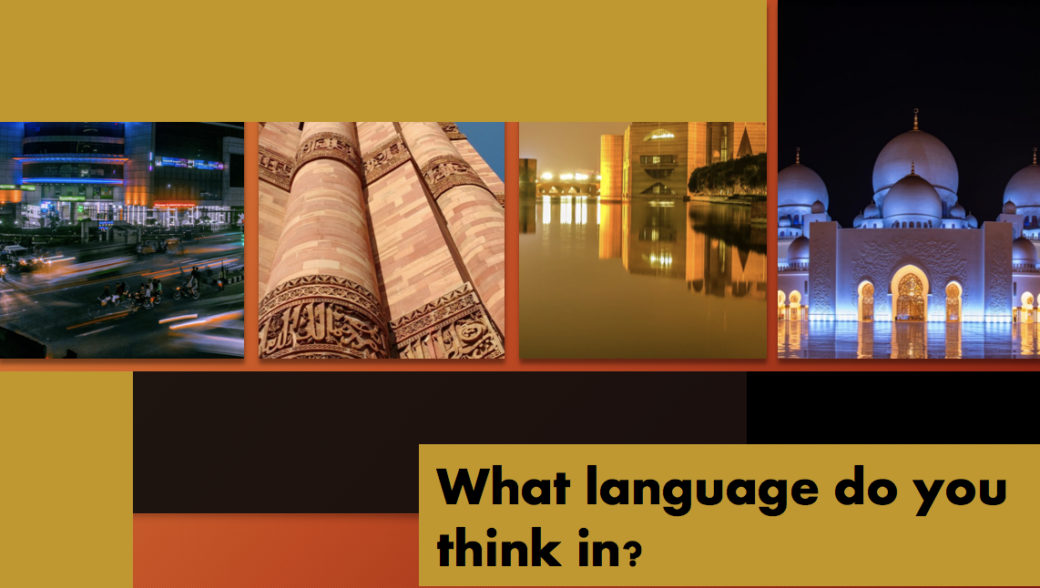
Muslim condemnation of terrorism
Yes, a condemnation against terrorism from Muslims has been robust all over the Muslim world. As can be seen in Muslim countries’ media outlets, general Muslims responded to ISIS’s terrorism and other terror groups with condemnation and disgust. At the same time, Muslim scholars have issued religious verdicts (Fatwa) on terrorism and suicide bombings calling these acts unjust, evil, and against Islamic values. Yet, even though Muslims are the primary victims of killing and destruction of these terror groups, Muslims are blamed for their perceived silence and not speaking up against these groups. The cliche question is, “Why do the Muslims not condemn terrorism?”
History engraved

The picture shows dark marble tiles of the 9/11 Memorial in Manhattan, New York. Along with the water fountain, black stone tiles with 2977 names perished on September 11, 2001. Nurul H. Miah was one of the 60 Muslim victims of nearly 3,000 who died on 9/11.
Where are the moderate Muslims?
Another common stereotypical question is: “Where are the moderate Muslims? Why don’t they condemn terrorism if they are against terrorism?” Information and answer to these questions are at the fingertip of any researcher. Muslims, especially those familiar with their scripture, the Quran, will not only condemn terrorism in any form but also stand against terrorism as a religious duty. If someone is wondering, where are the Muslim voices against terrorism and why are they not speaking up, the following are some food for thought for them.

What language does a Muslim think?
It is important to realize that there are 50 Muslim countries in the world. They have enormously different cultures and languages. Muslims use their language to express their thoughts and feelings. So, when Muslims community of the different parts of the world oppose or condemn ISIS or other terror groups, they do it in their native language, not English. As a result, it is not surprising that those condemnations never reach the headlines of mostly English media in the west.
Not to mention that the rhetoric of “Muslims are the enemies” gives the media more viewers by getting people upset, emotional, and outraged. On the other hand, news coverage of Muslim intellectuals, clerics, and general Muslims expressing their rebukes towards terrorism does not help the rating of TV channels or increase newspaper sales. As a result, they do not make the news headlines.
The new kids in the block
An equally important factor is the cultural and religious “otherness” of Muslims. When an individual Muslim kills unjustified, 1.7 billion Muslims and Islam get the blame for the crime. Consequently, Muslims and mosques become targets of hate-crimes. On the contrary, if there is a mass-shooting and the shooter is a Christian, no one blames Christianity. In this case, the mass shooter becomes a mentally disturbed, lone wolf, not a terrorist.
The point often overlooked is that many Muslims have to live with the bare minimum in food and livelihood. Some of them hardly manage to stay alive, not only because of their poverty but also because they are the primary target for terror groups like ISIS. Due to their dire financial situation, some have very little time, intention, or ability to go on social media (if they have access at all) and write about their disapproval of ISIS.
Muslim condemnation on terrorism
- Muhammad Tahir-ul-Qadri issued over 600 pages long Fatwa on Terrorism.
- U.S. Muslim Religious Council Issued Fatwa Against Terrorism: http://www.nbcnews.com/us-muslims-issue-fatwa-against-terrorism/
- Click for more: https://foreignpolicyblogs.com/2014/10/10/moderate-muslims-speak-out-against-terrorism/
- Click here for this article: https://en.wikipedia.org/wiki/Muslim_attitudes_toward_terrorism#Condemnation_and_opposition
The popular perception
The recurrent events of terrorism, vocal groups who blame all Muslims for a few’s actions, and the rating-hungry media; all play a role in shaping people’s perception. The silent majority passively absorb the delivery of information and misinformation from these sources.
To the uninformed people, the negative perception of Islam is real. They believe that Islam has a lot to do with the violence. How can the followers of a peaceful religion bring so much death and destruction? War cries from the extremists, soundbites from the far-right politicians, and the media bias add to the narrative.
What many people do not see
When a horrific event unfolds in the streets of Europe, the US, or in the Middle East, Muslims cringe and pray…not again, please God… let this not be a Muslim. Eventually, if the perpetrator is a Muslim, a sinking feeling plunges the mood of 1.7 billion Muslims. An existing wound opens up further. Muslims wake up to the painful reality of terrorism committed in the name of their peaceful religion, again.
Muslim reaction
It is a Muslim responsibility to educate their non-Muslim friends, neighbors, and the rest of the world about Islam’s peaceful nature with their actions, practices, and their standing against extremism. Muslims need to do this before someone else with Islamophobia or with extreme views set the narratives of what Islam and Muslims stand for.
From a theological perspective, Islam stands against any form of innocent killing, suicide, and injustice. Islam propagates a path of moderation and shuns extremism. Please click for further reading: Sanctity of life in the Quran. https://qpeace.net/?p=3117
Allah Knows the best

Be the first to comment